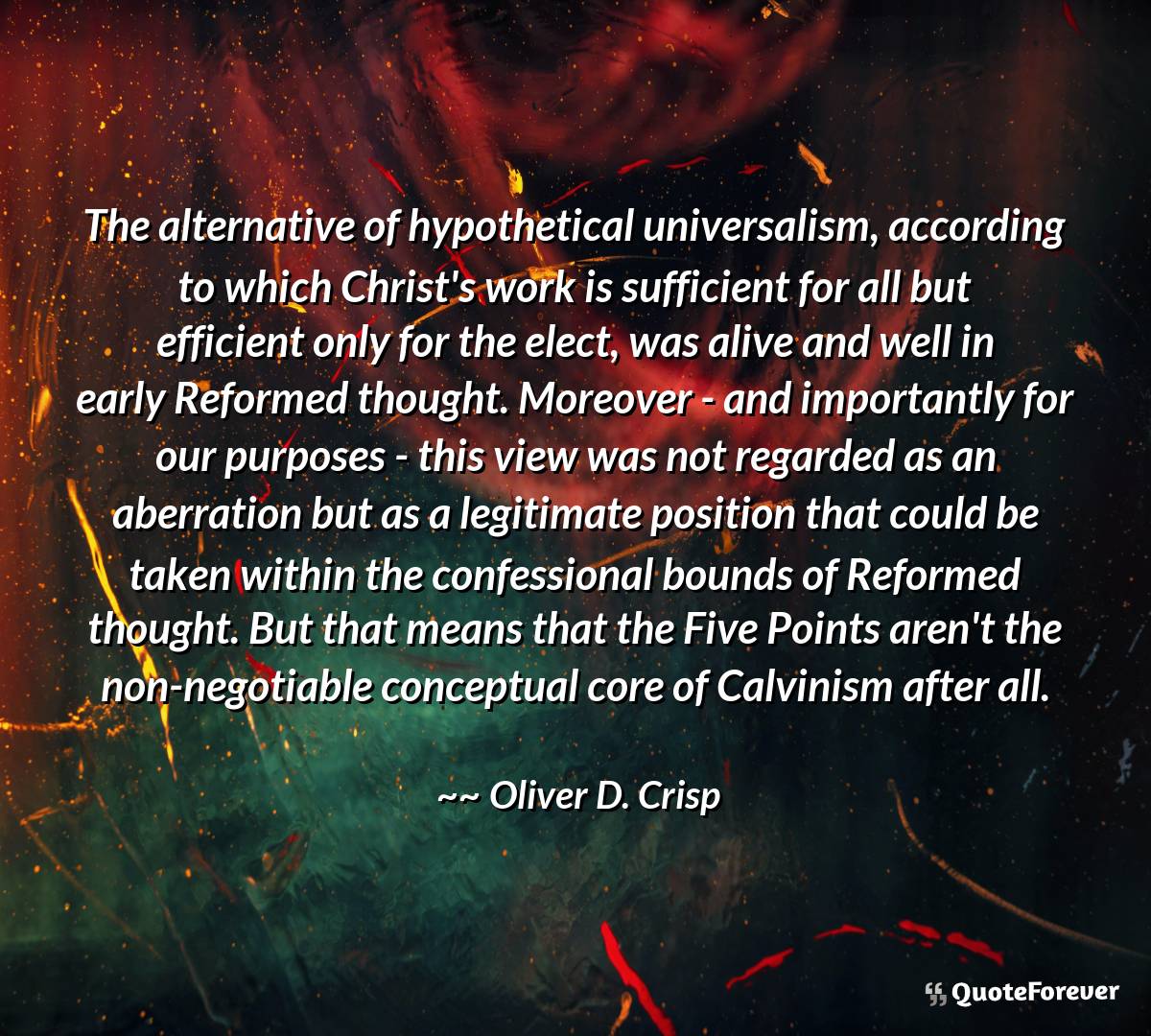Only Text Quote
The alternative of hypothetical universalism, according to which Christ's work is sufficient for all but efficient only for the elect, was alive and well in early Reformed thought. Moreover - and importantly for our purposes - this view was not regarded as an aberration but as a legitimate position that could be taken within the confessional bounds of Reformed thought. But that means that the Five Points aren't the non-negotiable conceptual core of Calvinism after all.
